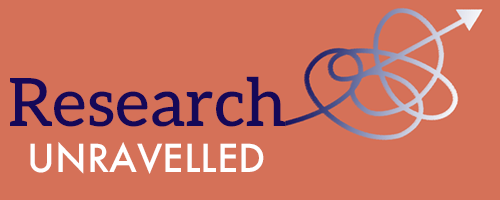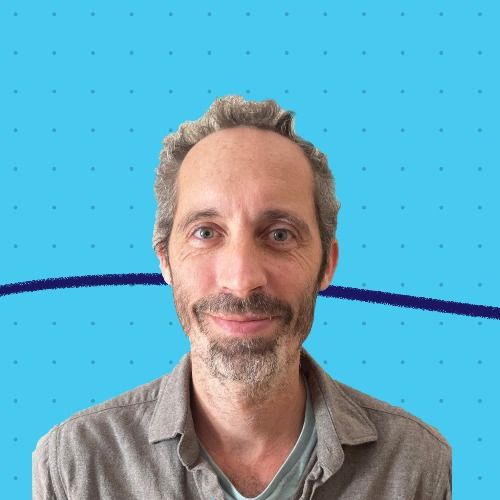Nick Hillier | The Academy of Medical Sciences
What counts as a 'meaningful' engagement when involving patients and public with research? How can we elevate the voices of people with lived experience as experts? How can we support those people who agree to tell their own stories for impact?
In this episode Peter is joined by Nick Hillier, Director of Communications and Engagement at the Academy of Medical Sciences, which was established in 1998 to ensure that everybody can access good health, supported by the best research and evidence.
---
Help us develop a snapshot of the research comms sector today by filling out our questionnaire:
https://bit.ly/3QJHKKX
Get in touch with us:
Visit us at www.orinococomms.com | Contact me at peter@orinococomms.com | Join our community and subscribe to our newsletter at orinococomms.substack.com | Tell us what you think bit.ly/orinoco-speakpipe_pod
Transcript
Welcome to Research Unraveled.
2
:The podcast is dedicated
to the somewhat niche but hugely impactful
3
:world of research, communications
that specialism within a specialism.
4
:In particular,
we're exploring the idea of complexity
5
:which lies at the heart of this field.
6
:and hearing from communications experts
about how they navigate
7
:and overcome or unravel that complexity.
8
:Research
unraveled is brought to you by me, Peter
9
:Barker,
owner of RNA Co Communications, an agency
10
:where we specialize in working
with research based organizations.
11
:This month, I am joined by Nick Hillier,
the director of communications
12
:and engagement at the UK's
illustrious Academy of Medical Sciences.
13
:Our conversation is a proper
14
:deep dive into our topic.
15
:I know that deep dive is a phrase
16
:that's perhaps a little bit overused
now in a podcast context.
17
:So much so that, Google's own
18
:AI podcast creator on notebook,
19
:where you have two artificial hosts
20
:discussing whatever topic it is
that you feed into it.
21
:They always seem
to start their conversations by referring
22
:to a deep dive
that they're going to go into.
23
:So I've actually mixed it
from my own introduction.
24
:I'm rather embarrassed
to be using such cliched phrase,
25
:but this actually is a deep dive,
so it's justified.
26
:There's an in-depth chat
and it's a fascinating one.
27
:We're going to be talking about
how to broaden participation
28
:in research and in the way that
research is communicated.
29
:Nick will
30
:be talking about the work that he
and the Academy and others are doing
31
:to diversify the voices
that we hear talking about research
32
:so that we're not always
just hearing the same old voices.
33
:And the push for people
with lived experience
34
:to be given greater recognition
as experts in their own right.
35
:As I say, it's an in-depth chat.
36
:So I will wrap up this intro
as swiftly as possible.
37
:But I did want to mention one thing
before we jump into the conversation,
38
:and that is that we have just released
the latest Research Comms Snapshot survey.
39
:I will talk about it
a bit more at the end of the podcast,
40
:but the short story is
this is a survey for people who work
41
:as professional communicators at research
institutes, research universities.
42
:the idea is that from
its findings will develop
43
:a picture of the state of the research
comms sector at this moment in time.
44
:We did one last year.
It was incredibly illuminating.
45
:We created a report off the back of it,
and we want this to be an annual event
46
:so that we can track the changes,
the shifts, the patterns.
47
:The opportunities,
48
:challenges, hopes and fears
of those working in the sector over time.
49
:if you're interested
in sharing your experiences,
50
:we would be hugely grateful.
51
:The more people who respond,
the more valuable the insights.
52
:So please do consider taking a few minutes
to answer the questions.
53
:You can click on the link in the episode
description that will take you to a page
54
:explaining more about the survey
and a link to the survey itself.
55
:All right.
56
:Back though, to this month's
guest interview with Nick Hillier.
57
:Enjoy.
58
:There you have it.
59
:That was a thoroughly interesting
conversation from my point of view.
60
:I really enjoyed speaking with Nick.
61
:This is a subject that I think
62
:is top of mind
for so many people who work in the sector,
63
:but it's not always entirely clear
how one goes about
64
:broadening that participation,
65
:bringing in diverse voices,
something that we all know that matters.
66
:But how do you do it?
67
:That's the question.
68
:And so I really appreciate Nick
69
:sharing his insights
70
:that he's accumulated
over a number of years
71
:doing this kind of work
and sharing the strategy that the academy,
72
:the Academy of Medical Sciences,
is, is taking to further that mission.
73
:As I said at the start of this podcast,
74
:I also want to talk about the survey
75
:that we've just published. So.
76
:Please going to take a look at that.
77
:It should only take a few minutes
to fill out.
78
:this annual report, this snapshot survey
79
:could become a really valuable tool
80
:for the research comms community
to better understand
81
:the shared challenges and opportunities
that the sector faces,
82
:especially at this time right
now, where, you know, let's be honest,
83
:there are challenges
84
:that we as a community face
85
:and here in the UK where
I'm speaking from,
86
:talking about the financial crisis
that universities face
87
:So now more than ever,
I think we need to come together to,
88
:represent our interests
and understanding ourselves better
89
:and the community better
is a great way of helping us to do that.
90
:So yeah,
I think it will be a valuable tool.
91
:And at the moment
it is focused on the UK.
92
:I would also like to do
one for my network in the US,
93
:and perhaps that's something
we'll look into doing later this year.
94
:But for now, I think specific
we want to hear from people in the UK
95
:because it's kind of easier
to draw conclusions, from
96
:this particular research comms community.
97
:Going to take a look.
98
:As I say, it should take a few minutes.
99
:Would really appreciate your input,
your insights.
100
:People were incredibly generous
with their thoughts and their experiences
101
:last time around.
102
:So I hope we get the same kind of
contribution again.
103
:This time.
104
:Thank you so much.
105
:Next time you will hear from me,
I'll be back with Bianca for research.
106
:Unraveled. Extra. Until then. Bye.


